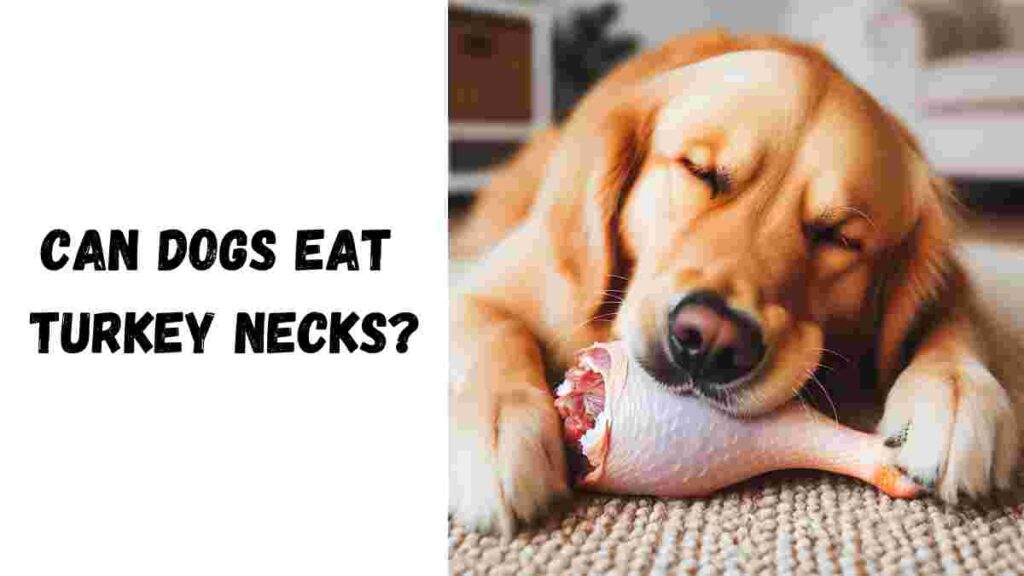Can Dogs Eat Turkey Necks: Dogs are cherished members of our families, and their nutrition plays a critical role in their overall well-being. With pet owners increasingly seeking natural, raw, or homemade options for their dog’s diets, the inclusion of various meats and bones is a popular topic of interest.
One such meat is turkey, and more specifically, the often-discarded turkey neck. But is this a safe and nutritious treat for your pup? In this detailed guide, we’ll address all your questions about dogs and turkey necks, ensuring your furry friend’s diet is both safe and healthy.
Let’s find out: Can Dogs Eat Turkey Necks?
Best Nutritious Food For Your Dog Buddy
Best Bed Options For Your Super Dog

Table of Contents
Understanding Dog Nutrition
Before we explore the world of turkey necks, it’s vital to grasp the fundamentals of canine nutrition. Dogs, like humans, require a balanced diet to support their body functions, growth, and energy levels.
A balanced diet for dogs typically consists of proteins, fats, carbohydrates, vitamins, minerals, and water. The right proportions of these elements are crucial to ensure optimal health and prevent deficiencies or excesses that can lead to various health issues.
The Nutritional Value of Turkey Necks
Turkey necks are rich in several essential nutrients that are beneficial for dogs. They provide a good source of protein, as well as healthy fats, iron, zinc, B vitamins, and omega-3 fatty acids. When compared to other meats, turkey necks are also relatively lean, which is important to consider, especially for dogs prone to weight issues.
Breaking Down the Nutrients
Each part of the turkey neck offers a unique nutritional value. For example, the connective tissue and cartilage provide a natural source of glucosamine and chondroitin, valuable for joint health. The actual bone provides calcium and phosphorus, essential for strong bones and teeth.
A Comparison with Other Dog-Friendly Foods
When pitted against popular dog-safe diet foods, turkey necks shine as a natural and nutrient-dense option. Their nutrient content often surpasses that of many commercial dog foods without the additives or preservatives found in some commercially processed products.
Benefits of Feeding Turkey Necks to Dogs -Can Dogs Eat Turkey Necks?
Feeding turkey necks to your dog can offer several advantages beyond a simple treat.
Dental Health Benefits
The act of chewing on turkey necks, or any raw and meaty bones, can lead to improved dental hygiene. Chewing helps to scrape off plaque, reduce tartar build-up, and strengthen gums. This, however, is best achieved with raw, not cooked, bones as the latter can splinter and cause significant dental damage.
A Source of Essential Nutrients
The comprehensive nutrient profile of turkey necks is why pet nutritionists often recommend them. They contribute to a healthy coat, boost the immune system, and support proper digestion.
Promoting Joint Health
For dogs of all ages, joint health is a concern. Whether preventing or managing conditions like arthritis, the natural glucosamine and chondroitin found in turkey necks can be beneficial for maintaining flexibility and mobility.
Potential Risks and Considerations: Can Dogs Eat Turkey Necks?
Every food comes with its share of potential risks, and turkey necks are no exception.
Choking Hazard
The most significant risk when giving your dog any bone to chew on is the potential for choking. Always supervise your dog closely, especially with new or particularly hard bones.
Contamination
There is a risk of salmonella or other bacterial contamination, which is why proper handling and storage are critical. It’s also why some pet owners prefer to cook turkey necks before giving them to their dog. However, it’s essential to remember that cooked bones are more brittle and can cause issues like splintering or gastrointestinal obstructions.
Allergic Reactions
Occasionally, a dog might have an allergic reaction to turkey or its neck. Keep an eye out for any changes in behavior, skin, or digestion after introducing the necks into their diet.

Preparing Turkey Necks for Dogs
Deciding whether to feed your dog raw or cooked turkey necks is a personal decision that should be based on your dog’s dietary needs, health history, and the potential risks that come with each process.
Reducing Risks during Cooking
If you choose to cook the turkey necks, boiling or slow-cooking them can help reduce the risk of splintering. Always ensure they are cooked thoroughly to kill bacteria that could be harmful to your dog.
Portion Sizes
The size of the turkey neck should match the size and chewing habits of your dog. A large breed dog may handle a turkey neck without issue, while a smaller dog would benefit from a smaller portion or a ground option.
Introducing Turkey Necks into Your Dog’s Diet: Can Dogs Eat Turkey Necks?
A gradual approach to introducing turkey necks is the safest way to prevent any digestive upset.
Begin Slowly
Chop or grind the first few pieces before giving them to your dog. You can gradually increase the bone content and piece size as your dog becomes better at handling them.
Observing for Reactions
Watch for any changes in behavior, including stomach upset, vomiting, or diarrhea. If all seems well, you can continue to increase the amount given.

Alternatives to Turkey Necks
If turkey necks aren’t an ideal fit for your dog, there are other options to provide similar benefits.
Other Bones and Chews
Bones like chicken or lamb, or commercial dental chews that replicate the act of chewing on bone material, can also be useful for your dog’s health.
Nutritious Treats and Supplements
If you’re uncertain about feeding your dog bones or don’t have access to them, there are many supplements and treats available that can supplement your dog’s diet in similar ways.
FAQ: Can Dogs Eat Turkey Necks?
What are the nutritional benefits of turkey necks for dogs?
Turkey necks offer a wealth of nutritional value. They’re a good source of protein, healthy fats, and essential vitamins and minerals, and they can be especially beneficial for joint health.
What safety we need to ensure?
Raw bones are generally safer than cooked bones; cooked bones are prone to splintering, which can cause injuries. However, the risk of bacterial contamination with raw turkey necks is higher.
What should be the feeding frequency?
How often you feed your dog turkey necks should be based on their individual needs and should not exceed 10% of their daily food intake.
Breeds to Watch Out For
Dogs known to gulp their food or have a history of digestive issues will need extra caution with any new treat, including turkey necks.
Dealing with a Choking Incident
If your dog chokes on a turkey neck, it’s essential to stay calm. If you can safely reach into the mouth and remove the obstruction, do so. If not, get to the nearest veterinary clinic as quickly as possible.
Dental Hygiene
The act of chewing on turkey necks can help improve your dog’s dental hygiene by naturally scraping away plaque and bacteria.
Allergic Reactions
Signs of an allergic reaction to turkey necks can include itching, hives, difficulty breathing, or digestive problems. If you notice any of these, discontinue feeding immediately and consult your vet.
Safety Tips for Feeding Turkey Necks
Keep these safety tips in mind when feeding your dog turkey necks.
Supervising Mealtimes
Never leave your dog alone with a bone or any food they can potentially choke on. Always supervise meal and treat times to prevent accidents.
Avoiding Cooked Bones
Cooked bones, particularly from poultry, can splinter easily, causing serious injuries in the mouth, throat, or digestive system.
Maintaining Cleanliness
Always ensure your dog’s feeding areas are clean to reduce any bacterial risks associated with feeding raw or meaty bones.
Consulting with Your Veterinarian
Discussing changes in your dog’s diet, including the introduction of turkey necks, with your veterinarian is crucial. Your vet will be able to offer advice on the suitability of this addition to your dog’s regular diet, taking into account any health concerns and the overall diet plan.
Wrapping Up: Can Dogs Eat Turkey Necks?
Can Dogs Eat Turkey Necks: Feeding your dog turkey necks can be a rewarding experience, offering health benefits and a tasty, natural treat. By making informed and cautious decisions, you can ensure that the inclusion of these necks in your dog’s diet is both safe and healthy.
Remember, the key to a happy and healthy pup is a balanced diet, regular exercise, and plenty of love and attention. Enjoy the bonding and satisfaction that comes with providing your dog with a diet that aligns with their natural needs, and watch them thrive with each delicious and nutritious bite!

Pingback: Can Dogs Eat Gushers? [Explained in 3 Powerful Steps] - Pawfect Pet Tips
Pingback: Why are brindle dogs unpopular? [3 Powerful Findings] - Pawfect Pet Tips